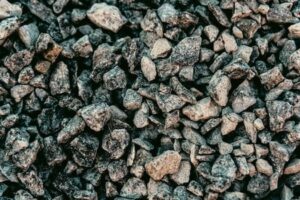
Many agriculture sectors in the world are looking for ways to make agriculture sustainable. Consequently, many farmers and gardening lovers are warming up to the idea of organic farming. This includes shunning chemical fertilizers in favour of organic ones.
Scientists have been able to relate a host of the health problems afflicting humans to the use of chemical fertilizers. In addition, the materials used in the manufacture of synthetic fertilizers are not good for the environment.
Exponential Growth of Organic Farming
Organic farming is, therefore, gaining ground fast globally. It involves managing the soil organically using naturally created manure in either liquid or solid form. This fertilizer is made from materials that occur naturally which is why it is sustainable.
Natural fertilizers provide the soil with a steady flow of nutrients as the natural materials which have been introduced into the soil break down. These are then fed to your plants which grow free of chemicals which are responsible for so many diseases.
Organic fertilizers improve the physical and chemical composition of the soil. This leads to the improvement of the biological roles of the soil.
Organic Liquid Fertilizer is Sustainable
A product that is derived from naturally available materials is sustainable because there is little chance of such materials running out. Plants and animal manure are ingredients used in the making of organic fertilizer and they have been around for eons.
Materials and ingredients that go into the manufacture of organic liquid fertilizer will therefore always be available because they are self-renewing. There will always be dung and waste to collect and vegetation is available everywhere. Even the desert has some. Also, organic fertilizer is derived from human waste and nothing is more sustainable than that.
In addition, organic agriculture ensures that the environment is taken care of. It is, therefore, safe to conclude that vegetation will be around well into the unforeseeable future.
Application of Organic Liquid Fertilizer
Organic liquid fertiliser is convenient as you can walk around your garden with a bottle in hand to feed your plants. It is great for your houseplants as it is for those in the garden. You can easily feed any weak plants that you find on your garden patrol.
When to Use Liquid Fertilizers
Liquid fertilizer works faster than the solid option. It is, therefore, the best to use in ‘emergency’ situations such as plants that are on the way out and cannot wait for the solid fertiliser to break down into some semblance of usefulness.
Consequently, they are the best to use in any of the following situations:
- For cold-tolerant crops. The soil temperature is cold and it is very difficult for nutrients to be absorbed in freezing temperatures. Organic liquid fertilizer brings in the much-needed nutrients faster than solid ones would.
- When seedlings use up all the nutrients due to the appearance of new seed, then it is necessary to give a much-needed boost with liquid fertilizer.
- For plants you are growing in a pot. Liquid fertilizers are especially important for potted plants or plants that you grow in a container because this is where they get their moisture and nutrients.
- For plants that look like they are not getting as many nutrients as they should. If your plants fail to darken in colour after you have added fertilizer, it is a clear indication that their nutritional quotient is too low.
Liquid fertilizers act fast. They are therefore the perfect option for plants that need emergency services. They are also a lot easier than the dry organic alternative.
Conclusion
With fertilizer that is rich in nitrogen, you must be careful to mix just enough into the soil. Too much nitrogen in the soil becomes even more with the rise in temperature. Liquid fertilizers are best used when the plant needs it.
When you have plants that will be in the ground for quite a while, you can feed them with some organic liquid fertilizer to refresh them.



